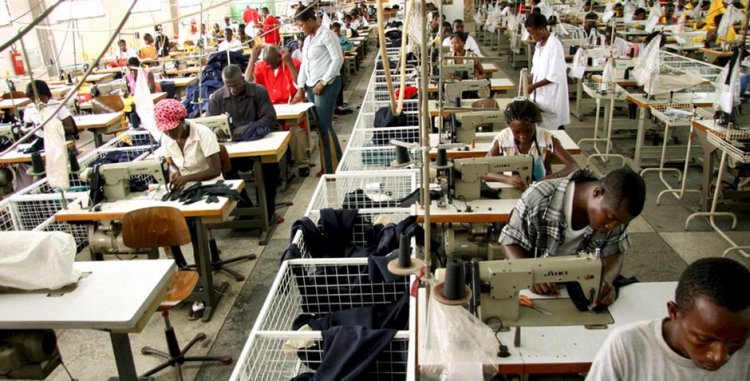The president of the board of directors of the Instituto de Gestão de Activos e Participações do Estado (IGAPE), Patrício Vilar, in declarations to Lusa said that the privatisation programme should be implemented until 2022, and that it could be extended beyond that with some companies, for which it may be necessary to find a "strategic partner" through a public tender.
Patrício Vilar, who was speaking on the sidelines of the visit that the President, Joao Lourenço, made on Wednesday to the textile factory Textang II, in Luanda, said that there are cases of companies that "urgently need to resolve quickly and get them up and running", because they have conditions to be fully operational.
"For those we will speed up the process. As a matter of fact, we had already prepared the tender pieces for the three textiles. As soon as the decrees are signed we will start this process and everything indicates that, in the case of industries, we would finish the tender in June at the latest", he indicated.
The head of IGAPE acknowledged that there have been "some surprises" along the way, which have already been identified, as well as the ways to solve possible problems.
The change he will bring about will be, in terms of procedures, instead of putting "some companies already on the stock exchange" , faster procedures will be adopted, in order to find a strategic partner", he stressed, disagreeing with The Economist's analysis and "all the voices that have been raised".
The Economist's economic analysis unit considered that the government's objective of privatising 195 state-owned or subsidised companies is compromised and will be "difficult to achieve" because of accumulated losses, high levels of bureaucracy and scarce liquidity in the financial system.
According to Patrício Vilar, it is necessary to find a strategic partner who, together with the State shareholder, will "overcome the situation, strengthen the competitive capacity" of the companies "and, at the moment when the bid to become a strategic partner is won, it will be necessary to commit to the deadline to take it to the Stock Exchange".
"We are not going to compromise the timetable itself, we are going to have to make some changes to face up to these surprises that we are encountering", in general terms, he reinforced.
The president of IGAPE explained that the surprises do not derive only from management difficulties, but also from the current market context.
"Whenever we have a market problem, a macroeconomic problem, like the one we are going through, it is natural that the revenues of these companies start to decrease. In some cases it's not the revenues, it's the receipts, i.e. the clients don't have the capacity to pay them", he stressed.
"So it's true, we are finding that, it was nothing we were not expecting and we already had this plan B, which is: you can't take it to the stock exchange, there is no problem, you take it to the public tender and you find a strategic partner that is available", he stressed.
The difficulties encountered, added Patrício Vilar, also led to "a little change in the approach strategy with the potential partners, that is, instead of waiting for the public tender to see who they are, what we are doing now is the opposite".
"We have received a lot of entrepreneurs, a lot of delegations of entrepreneurs, of financial intermediaries, who come to represent these entrepreneurs, in the sense that they express their will and we also understand what their fears are regarding some of the assets and some of the companies that we have to privatise", he stressed.
Patrício Vilar prefers to classify the mishaps as "a waiting test", which "was necessary to listen to the market".
"And now, believe me, you're going to start seeing the procedures go out one by one and in some cases even more than one simultaneously", he advanced.
Regarding the number of companies planned for privatisation, he said that "it will change a lot", without being able to say at the moment "if it is to reduce or if it is to increase", but he believes "that the large numbers will not change, they will not go out" of the 200.
As for the 32 companies of national reference, they will need more time: considering that "they are the engine of the economy, that they have had a significant share of the Gross Domestic Product (GDP), but precisely because of their complexity they are the ones that take more time".
Many of the processes that are being developed "are not public and do not have to be", he added.
"We are taking the necessary steps, so that companies are then placed in a more secure and more profitable way, not only from the point of view of collection, but of the economic efficiency of the country, employability and even social balances", he concluded.







